The second annual ECU Semester Experience at the Coast is well underway on the Outer Banks Campus, and sixteen students interested in coastal studies have swapped Greenville for Roanoke Island this spring. The semester-long program features six different courses which give the students opportunities to learn about coastal resources, sciences, and management through in-person classes and field trips.
While the inaugural Semester Experience at the Coast did not turn out as planned due to the pandemic, it didn’t stop two of the 2020 students from returning for round two! Junior Computer Science major Marco Agostini was especially excited to learn he could visit again. “I had such an incredible experience at the coast that semester that I wasn’t going to let it end like that! Last fall I got back in touch with Dr. Corbett, Dr. Lagomasino, and Dr. Muglia, who all helped me work out a way to come back in the spring.”, he said.
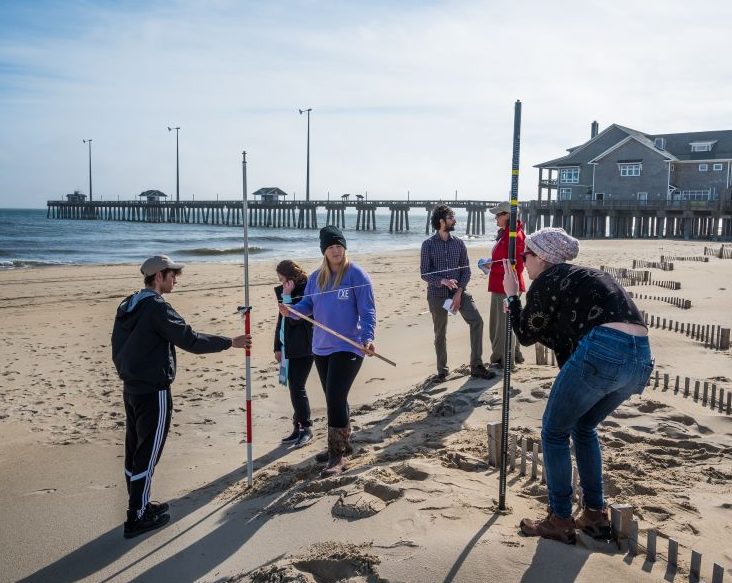
Before being sent home last year, the students were able to visit the beach near Jennette’s Pier to learn about beach morphology. This year Marco Agostini (left, foreground) and Lauren Wright (right, foreground) have returned to the Outer Banks to continue their coastal learning.
Agostini, who had already completed the program requirements but was offered an internship for a remote sensing project, continued, “We finally confirmed that my Computer Science courses would be all online, and I would be able to come back to Manteo in the spring – which of course I was thrilled about! I’m so happy to be back and I am currently working with Dr. Lagomasino and Dr. Muglia to use the satellite ICE-Sat2 to measure water levels and wave power.”
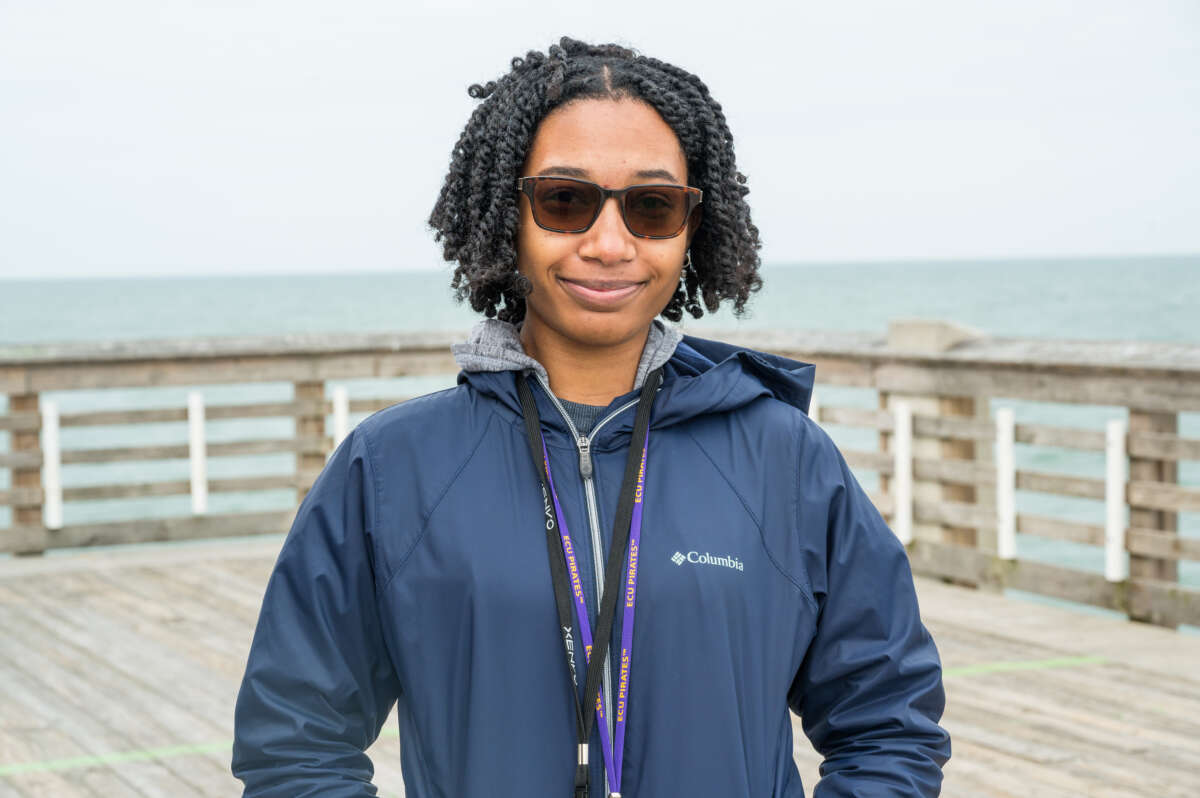
Relief to be on the coast this semester didn’t stop with Agostini. Chanel Sturdivant (above) came to the coast hoping to find internship and research opportunities, but she says she’s found even more than that. For her it has also been “a chance to live at the beach for a couple of months and to have smaller class sizes. I’ve found the program and the coast to be very therapeutic, and so many opportunities to be in nature have opened up to me since being here. As a very under-represented person of color, it’s a nice change of pace.”
The smaller class sizes make it easy for the instructors to take their students in the field. Dr. Jim Morley takes his Environmental Biology students on field trips almost every Monday, weather permitting. Recently the class of five set out pairs of settling plates at the north end of Roanoke Island, in Nags Head, and at Bodie Island. The students measured water quality parameters at each site, and they will leave the plates out in the water for at least two months to collect biofouling. When the time comes to remove them, they will process their samples in the lab and compare how each set of plates differed from those of the other locations. The group will also visit Jockey’s Ridge among other locations as Morley hopes to expose the students to as many different ecological systems as possible while they are here.
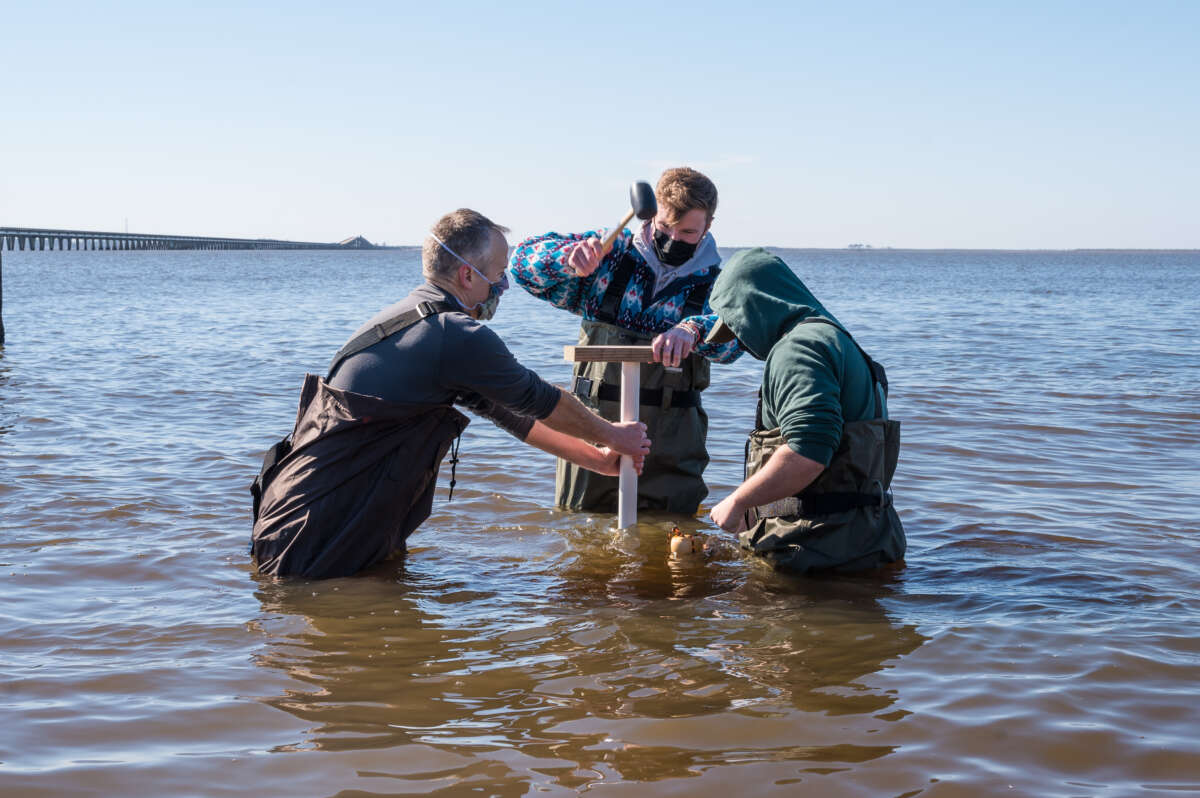
Two students help Morley place the settling plates into the sound. The plates (ceramic tiles) are fastened to a piece of PVC pipe and are oriented perpendicular to each other. They will be recovered near the end of the semester so that the students have a chance to analyze the biofouling.
Some of the program’s students have also had the opportunity to visit Jennette’s Pier with their professor Dr. Mike Muglia. This semester Muglia is teaching “Analysis Techniques and Methods of Coastal Ocean Research”. On the pier, the students used devices, seen below, called CTDs to obtain information about the water conditions below including temperature, salinity, and depth. Once lowered into the water, the CTD collects measurements throughout the water column to provide the most accurate picture of the seawater all around the pier. While these were very local measurements, the same type of device, on a much larger scale, is used in the Gulf Stream off the coast of Cape Hatteras for some of Muglia’s research.
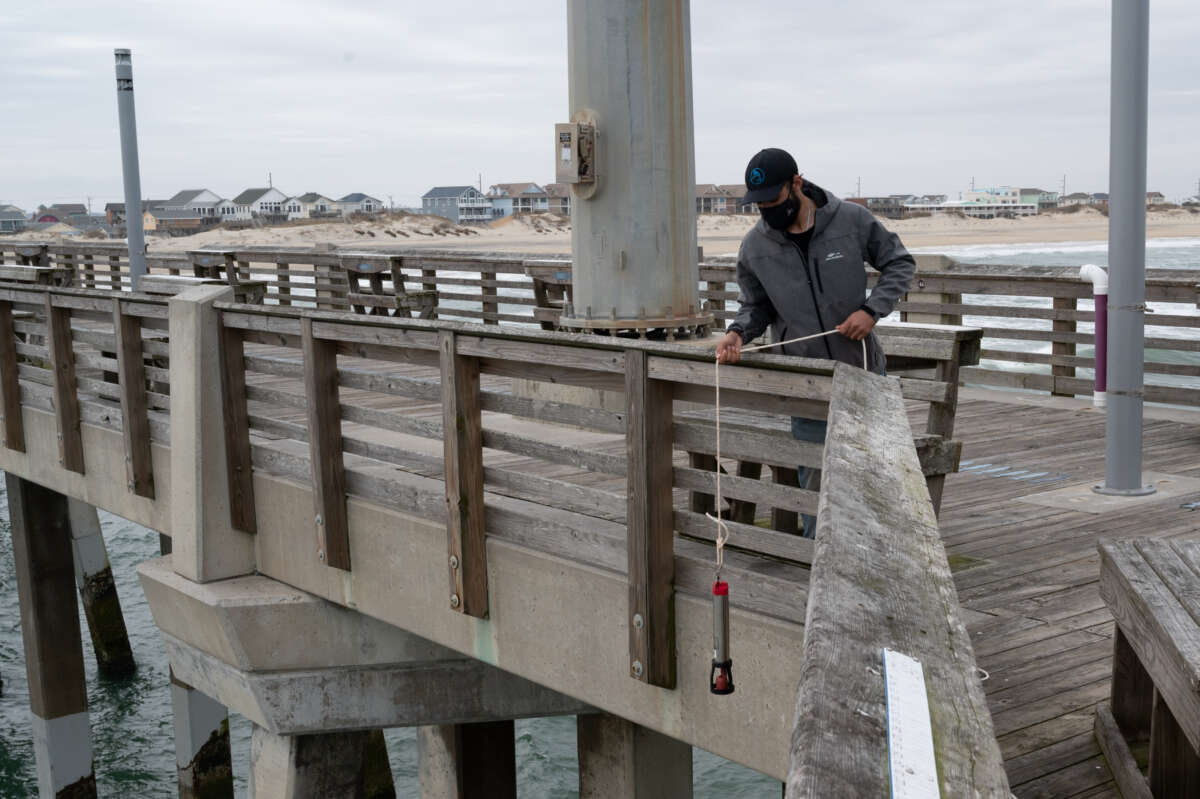
Whether in the classroom or out in the field, the Semester Experience at the Coast students are getting great experience that will prepare them for their post-college careers. Stay tuned to our website for more of the students’ experiences as the semester continues.

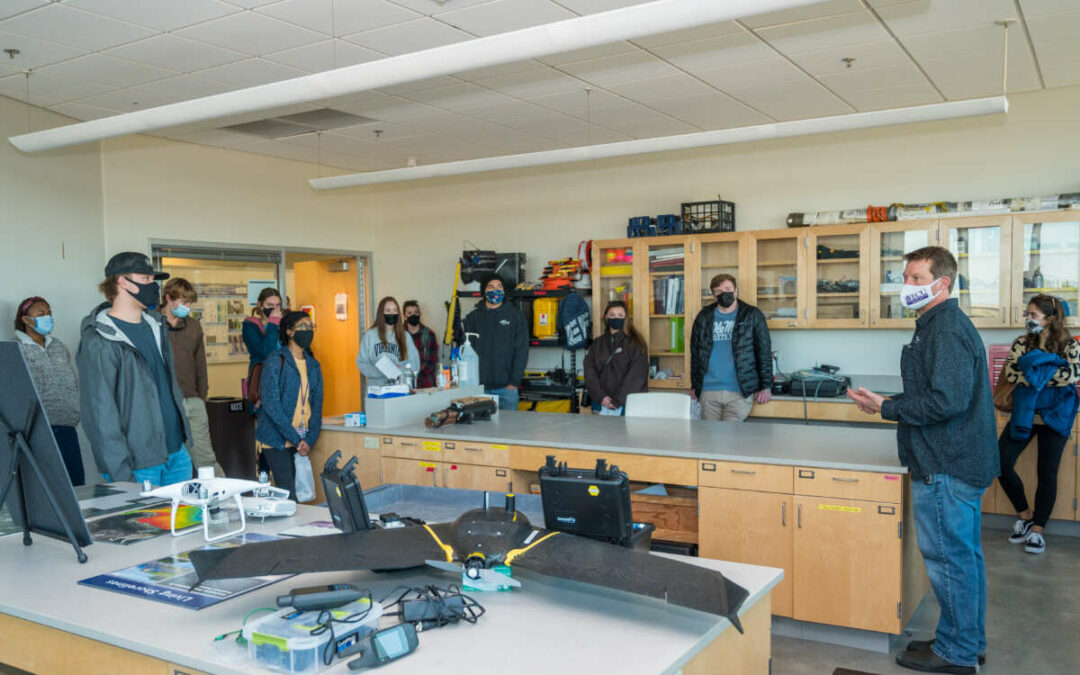

 Based at the Coastal Studies Institute (CSI), the North Carolina Renewable Ocean Energy Program (NCROEP) advances inter-disciplinary marine energy solutions across UNC System partner colleges of engineering at NC State University, UNC Charlotte, and NC A&T University. Click on the links below for more information.
Based at the Coastal Studies Institute (CSI), the North Carolina Renewable Ocean Energy Program (NCROEP) advances inter-disciplinary marine energy solutions across UNC System partner colleges of engineering at NC State University, UNC Charlotte, and NC A&T University. Click on the links below for more information. ECU's Integrated Coastal Programs (ECU ICP) is a leader in coastal and marine research, education, and engagement. ECU ICP includes the Coastal Studies Institute, ECU's Department of Coastal Studies, and ECU Diving and Water Safety.
ECU's Integrated Coastal Programs (ECU ICP) is a leader in coastal and marine research, education, and engagement. ECU ICP includes the Coastal Studies Institute, ECU's Department of Coastal Studies, and ECU Diving and Water Safety. The ECU Outer Banks campus is home to the Coastal Studies Institute.
The ECU Outer Banks campus is home to the Coastal Studies Institute.

